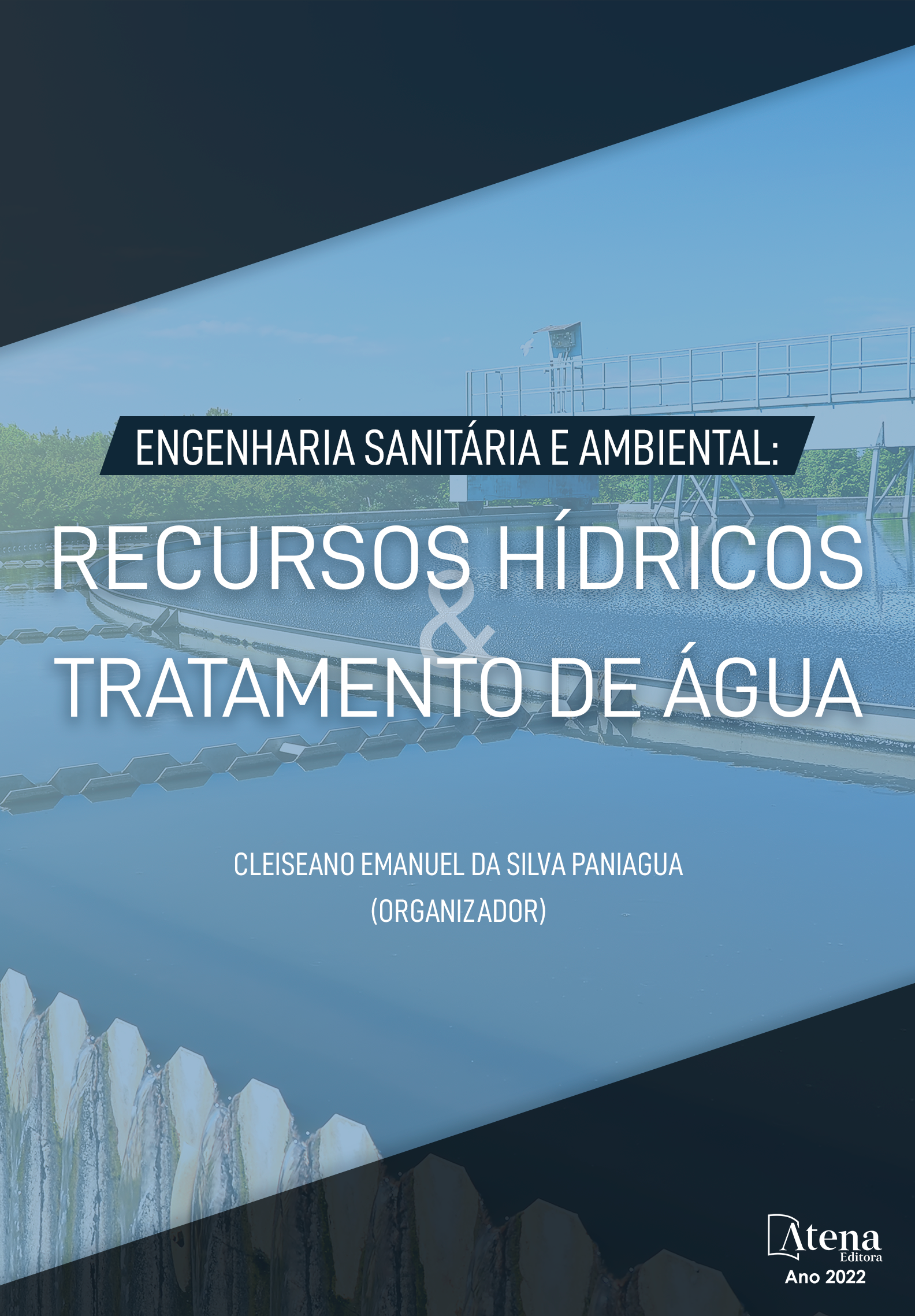
ESTUDO DE UM SISTEMA DE TRATAMENTO DE ÁGUAS NEGRAS POR TANQUE DE EVAPOTRANSPIRAÇÃO (TEVAP): ANÁLISES MICROBIOLÓGICAS, FÍSICO-QUÍMICAS E DE FITOTOXICIDADE
A disposição de esgoto sem tratamento nos corpos hídricos compromete a qualidade das águas, causando impactos ambientais e veiculando doenças. O aumento no tratamento de efluentes no Brasil, vem aumentando, porém, ainda de maneira insipiente. Nas áreas rurais este processo ocorre de forma ainda mais lenta. Assim algumas alternativas vem sendo propostas para reduzir este impacto como o tanque de evapotranspiração (TEvap). O objetivo desse trabalho foi analisar a presença de coliformes termotolerantes no solo dentro e fora de um TEvap, realizar ensaios físico-químicos no efluente do TEvap comparando-o com o tratamento realizado por fossa séptica e efetuar testes de fitotoxidade aguda com Eruca sativa. Observou-se uma quantidade elevada de coliformes termotolerantes na vala de infiltração, sugerindo um possível extravasse de efluentes e/ou falha na impermeabilição do sistema. O tratamento realizado no TEvap apresentou melhores parâmetros físico-químicos do que na fossa séptica. As análises de fitotoxidade indicaram bons resultados para os efluentes do TEvap e demonstram efeito tóxico do efluente da fossa séptica sobre o organismo testado. A partir dos resultados obtidos foi possível concluir que o TEvap se apresenta como um bom sistema de tratamento para águas negras.
ESTUDO DE UM SISTEMA DE TRATAMENTO DE ÁGUAS NEGRAS POR TANQUE DE EVAPOTRANSPIRAÇÃO (TEVAP): ANÁLISES MICROBIOLÓGICAS, FÍSICO-QUÍMICAS E DE FITOTOXICIDADE
-
DOI: 10.22533/at.ed.9952213063
-
Palavras-chave: Águas negras. Coliformes termotolerantes. Eruca sativa.Tanque de evapotranspiração
-
Keywords: Black waters, thermotolerant coliforms, Eruca sativa. Evapotranspiration tank
-
Abstract:
The disposal of untreated sewage in water bodies compromises water quality, causing environmental impacts and spreading disease. The increased treatment of effluents in Brazil has been increasing; however, still incipient. In rural areas, this process occurs even more slowly. Thus, some alternatives have been proposed to reduce this impact, such as the evapotranspiration tank (TEvap). The objective of this work was to analyze the presence of thermotolerant coliforms in the soil inside and outside a TEvap and perform physicochemical tests on the TEvap effluent and compare it with the treatment carried out the septic tank, and perform acute phytotoxicity tests with Eruca sativa. A high amount of thermotolerant coliforms was observed in the infiltration ditch, suggesting a possible leakage of effluents and/or failure in the impermeability of the system. The treatment carried out in TEvap presented better physicochemical parameters than in the septic tank. Phytotoxicity analyses indicated good results for the TEvap effluents and showed a toxic effect of the septic tank effluent on the tested organism. The results obtained made it possible to conclude that TEvap presents itself as a promising treatment system for black water.
-
Número de páginas: 20
- Adriana Mielke
- Maikon Kelbert
- Michele Cristina Formolo Garcia


